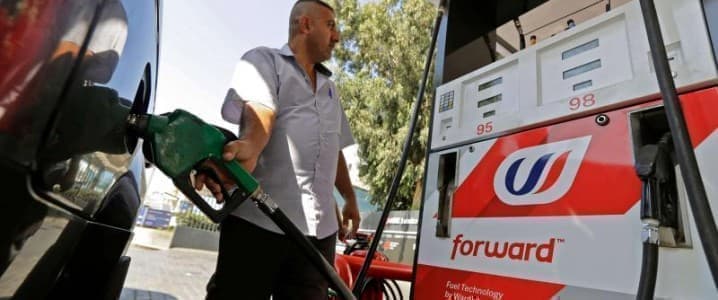Crisis-riven Lebanon appears on the brink of collapse once again. The deeply divided Mediterranean country, which was engulfed by a sectarian civil war for 15 years from 1975 to 1990, finds itself caught in a profound economic crisis.
As Lebanon’s economy unravels with power blackouts as well as shortages of gasoline, medicine and basic foodstuffs common place political instability in the deeply divided country is ratcheting ever upward. The economic implosion, described by the World Bank as one the most severe crises globally, has impoverished over three-quarters of Lebanon’s population poses the greatest threat to Lebanon’s stability since the civil war that lasted from 1975 to 1990.
Late last month yet another Lebanese government was formed by President Michel Aoun, a Christian Maronite, with it led by Sunni Muslim business tycoon Prime Minister Najib Mikati. The unwillingness of Lebanon’s ruling elite to relinquish power, break the status quo and implement serious reforms indicates that the political system is broken meaning the Mediterranean country will remain locked in a deep crisis for the foreseeable future. This could tip Lebanon into civil war, once again, with the fallout spreading across the Middle East and impacting oil prices at a crucial time in the global economic recovery.
Aside from the new government’s disinclination to implement serious reforms no western state or international body has offered to assist Lebanon with resolving the crisis while pro-reform political candidates were the biggest losers in the reshuffle. Analysts believe that militant Shia political and social organization Hezbollah holds considerable sway over the new government. Those tensions are being exacerbated by the influx of Syrian refugees from that Middle Eastern country’s long-running civil war, the Palestinian issue, and friction with neighboring Israel. The latest events are not only causing domestic tensions to soar but have created an ideal opportunity for Hezbollah to expand its already considerable sway over domestic affairs. The group, formed by Iran’s Revolutionary Guards in 1982 and is classified as a terrorist organization by the U.S. as well as other western powers, is attempting to fill the void left by a weak state.
Hezbollah, already emboldened by the rapid collapse of the U.S.-backed government in Afghanistan, imported four million liters of fuel on 80 trucks from the Syrian port of Baniyas last month. Teheran had facilitated the shipment by transporting the fuel to Syria so that it could be trucked through Hezbollah-controlled territory to Lebanon. The Shia militant organization is a powerful proxy for Teheran in its never-ending conflict with Riyadh for control of the Middle East. While many Lebanese are suspicious of Hezbollah and its goals, particularly with the organization using its parliamentary presence to undermine state institutions, many are so desperate they are unwilling to turn down access to vital fuels and foodstuffs. This is bolstering Hezbollah’s credibility as the savior of Lebanon, especially with the group’s leadership claiming that fuel shortages are the result of U.S. sanctions on Iran rather than a result of the economic crisis and Beirut’s mismanagement. That has significantly bolstered Hezbollah’s domestic influence further enhancing its leverage over Lebanon’s government.
Related: China To Coal Miners: Raise Production Now
As the economic crisis deepens, with little to no credible attempts from Beirut to turn the situation around, the risk of revolution and civil war grows. The rapidly deteriorating economy is reflected by gross domestic product shrinking by a whopping 25% during 2020 which will be followed by an expected 8.5% contraction for 2021. This is profoundly impacting Lebanon’s currency, the pound, sparking hyperinflation causing the prices of basic goods to soar and poverty to surge. During 2020 inflation surged by 88% compared to 2.9% a year earlier and is forecast to reach 120%, or potentially higher, in 2021. That makes the pound essentially worthless magnifying the hardships now being faced by many Lebanese with shortages of fuels and staple foods such as pita bread commonplace. It is estimated, because of the economy’s accelerating downward spiral, that 78% of Lebanon’s population lives in poverty with 36% in extreme poverty. According to the UN starvation is fast becoming a reality for many Lebanese. This rapid economic decline is fanning the flames of civil dissent causing fears of revolution or civil war to mount, especially with successive governments in Beirut proving incapable of ending the economic catastrophe which is fast turning into a political and humanitarian crisis. This is particularly worrying when it is considered that Hezbollah, through the support of Iran, has a militia capable of challenging Lebanon’s armed forces.
The geopolitical impact of an increasingly unstable Lebanon on the Middle East is tremendous with it having the potential to cause crude oil prices to spike. That is evident from the massive 2020 explosion which rocked Beirut’s port causing the Brent price to gain 3% between August 3 and August 12, 2020, as traders feared that any ensuing violence would spill over into Lebanon’s neighbors. If Lebanon were to collapse into civil war or Hezbollah attempted to seize power outright, it would trigger an oil price shock at what is a critical juncture for the world’s post-pandemic economic recovery. Brent has soared by over 8% since the start of July 2021 and is expected to rise further with some analysts tipping $100 a barrel of oil before the end of 2021. That would be a major inflationary blow for a global economy still recovering from the pandemic and already battling a series of supply crunches. A stronger Hezbollah also poses a threat to stability in Latin America with the organization, along with its sponsor Iran, having built a substantial presence in Venezuela where it is engaged in a range of illicit activities.
By Matthew Smith for Oilprice.com
More Top Reads from Oilprice.com:
- A Very Predictable Global Energy Crisis
- The Real Reason OPEC+ Refused To Boost Production Further
- WTI Oil Price Breaks $80 For The First Time Since 2014


















